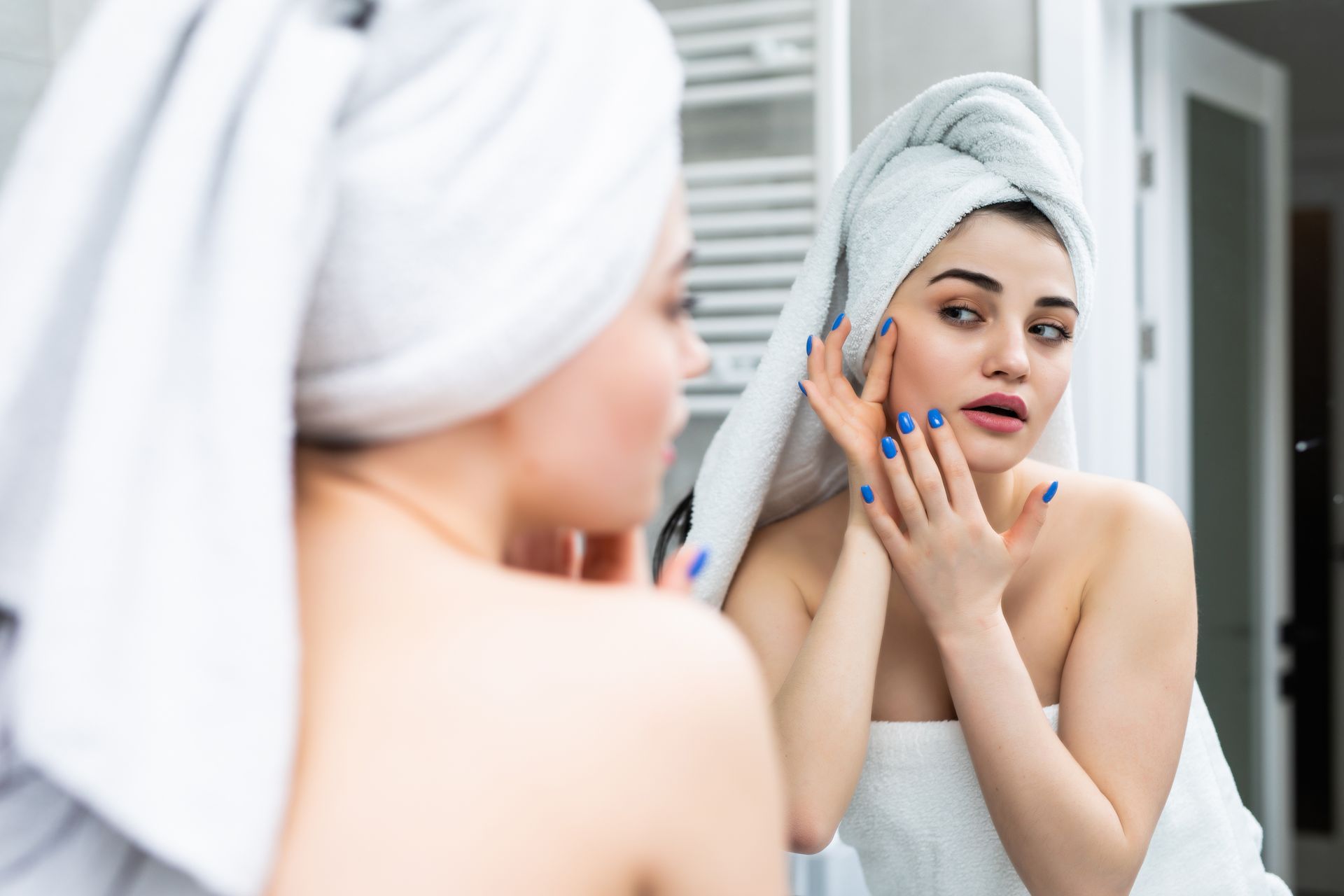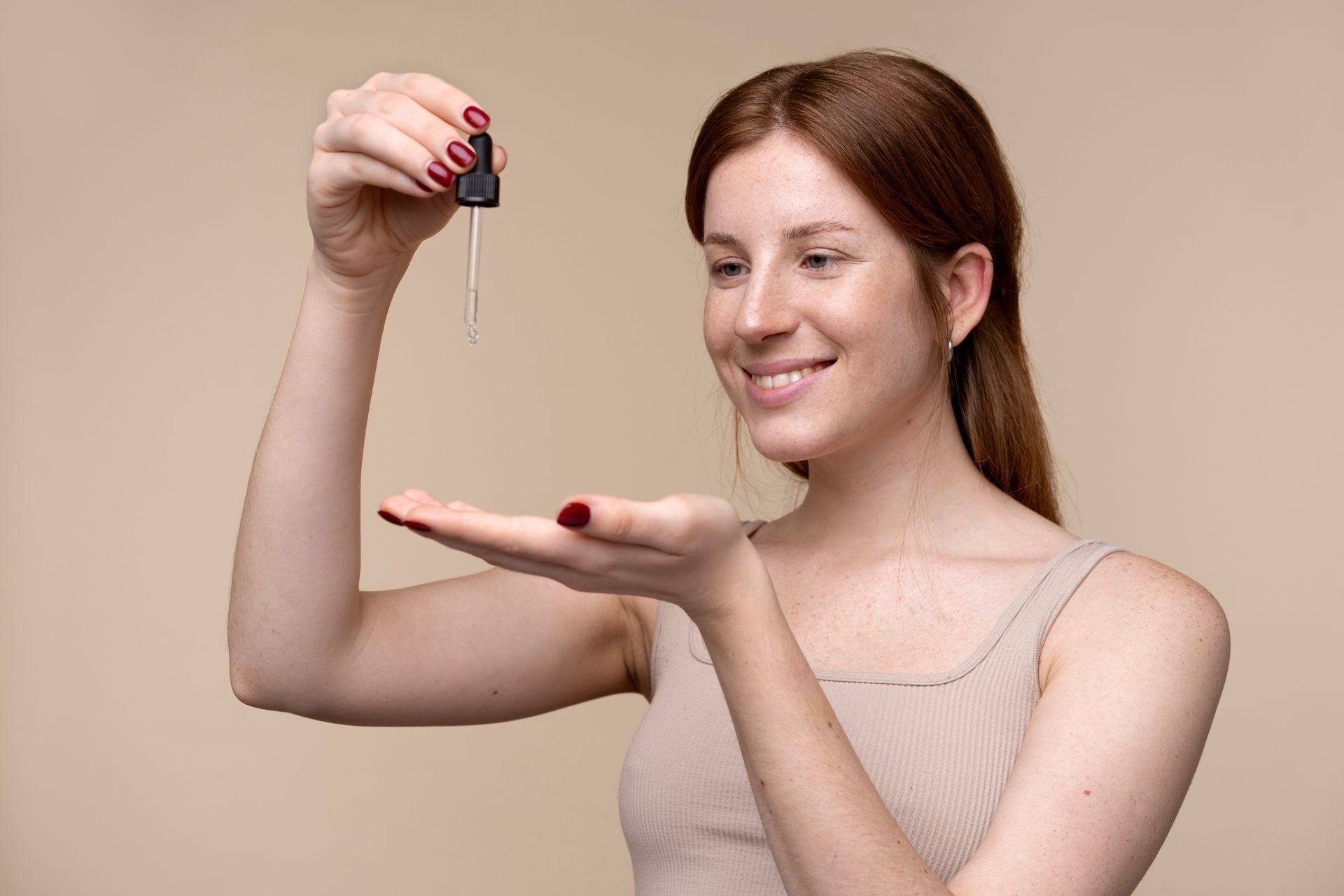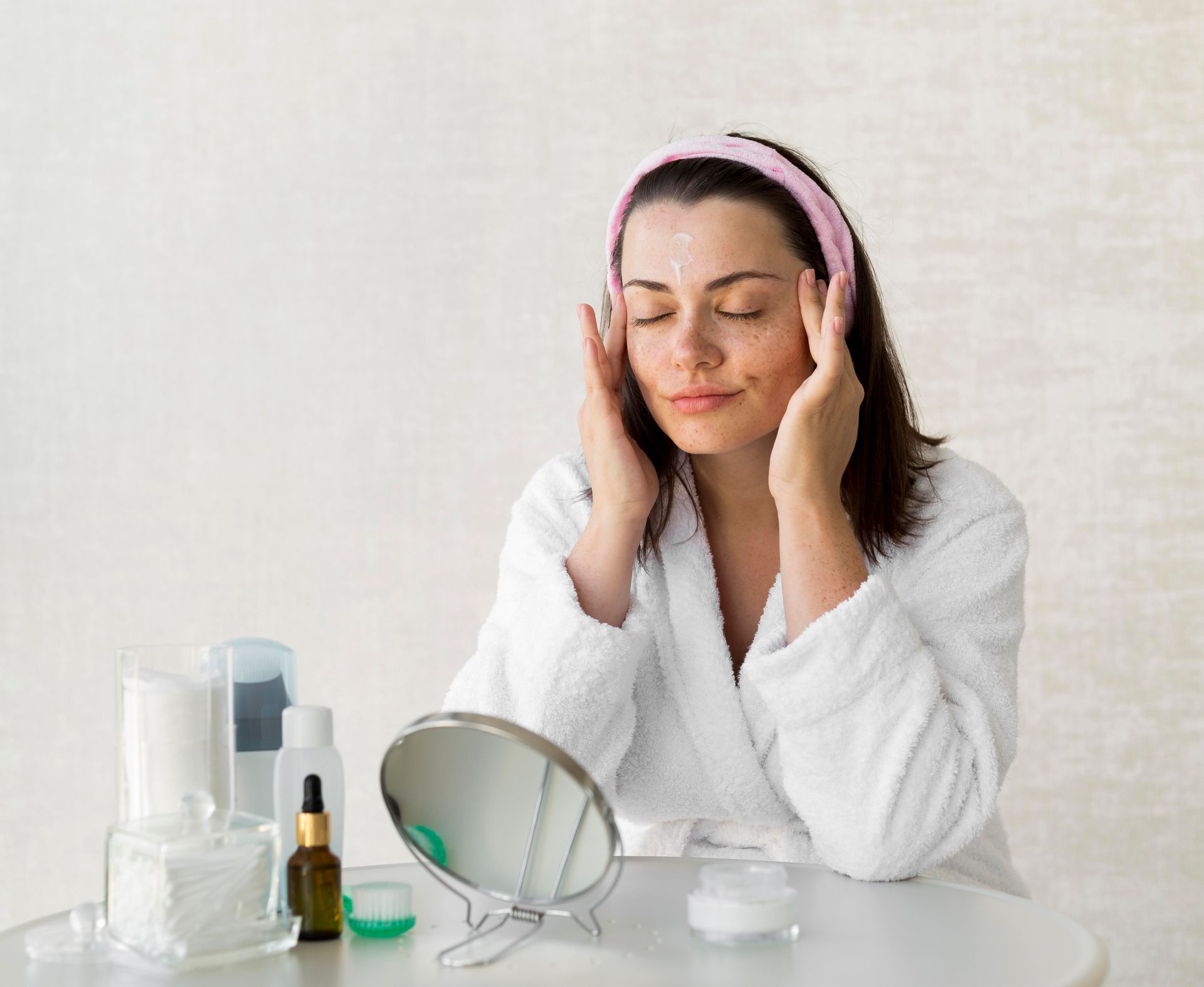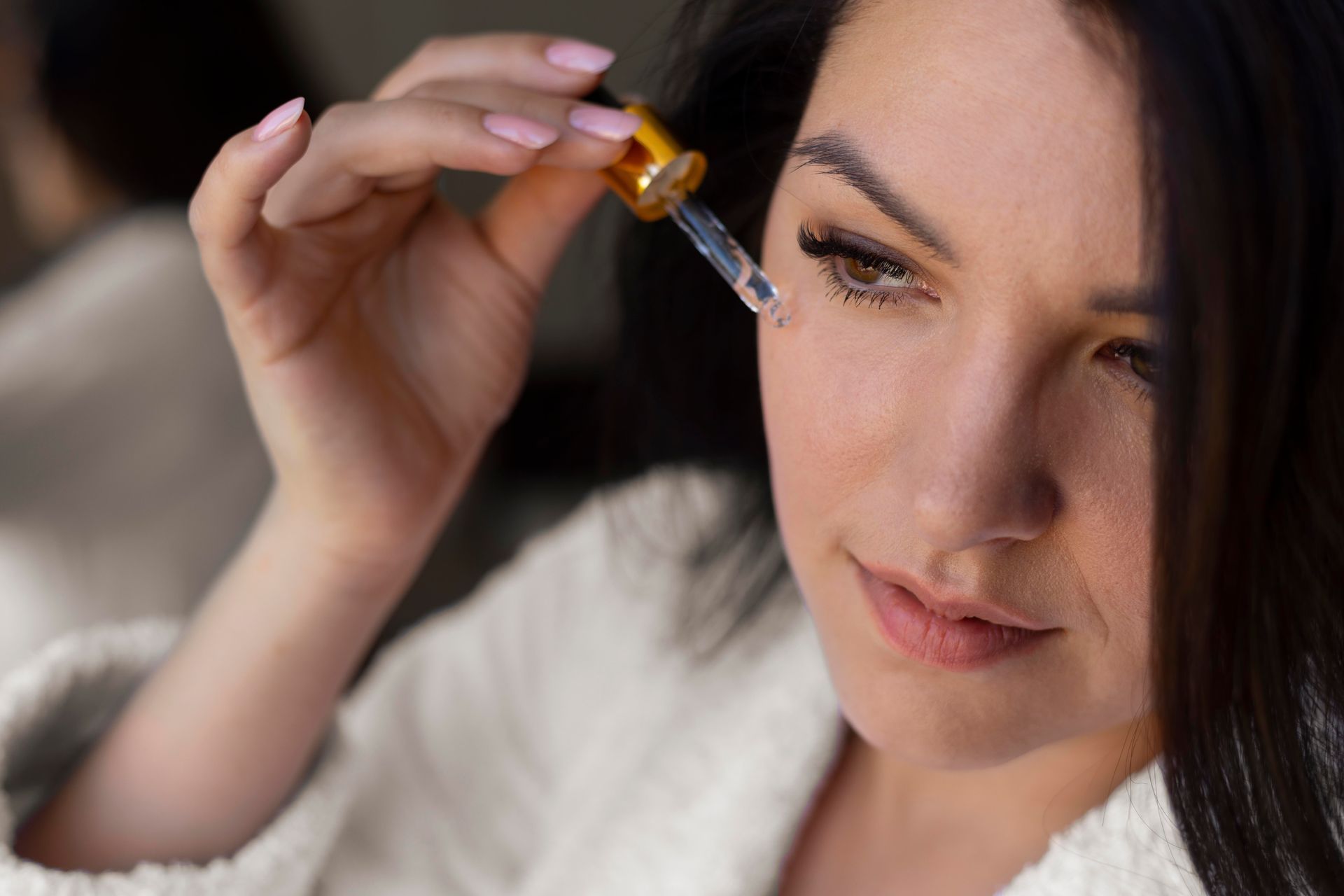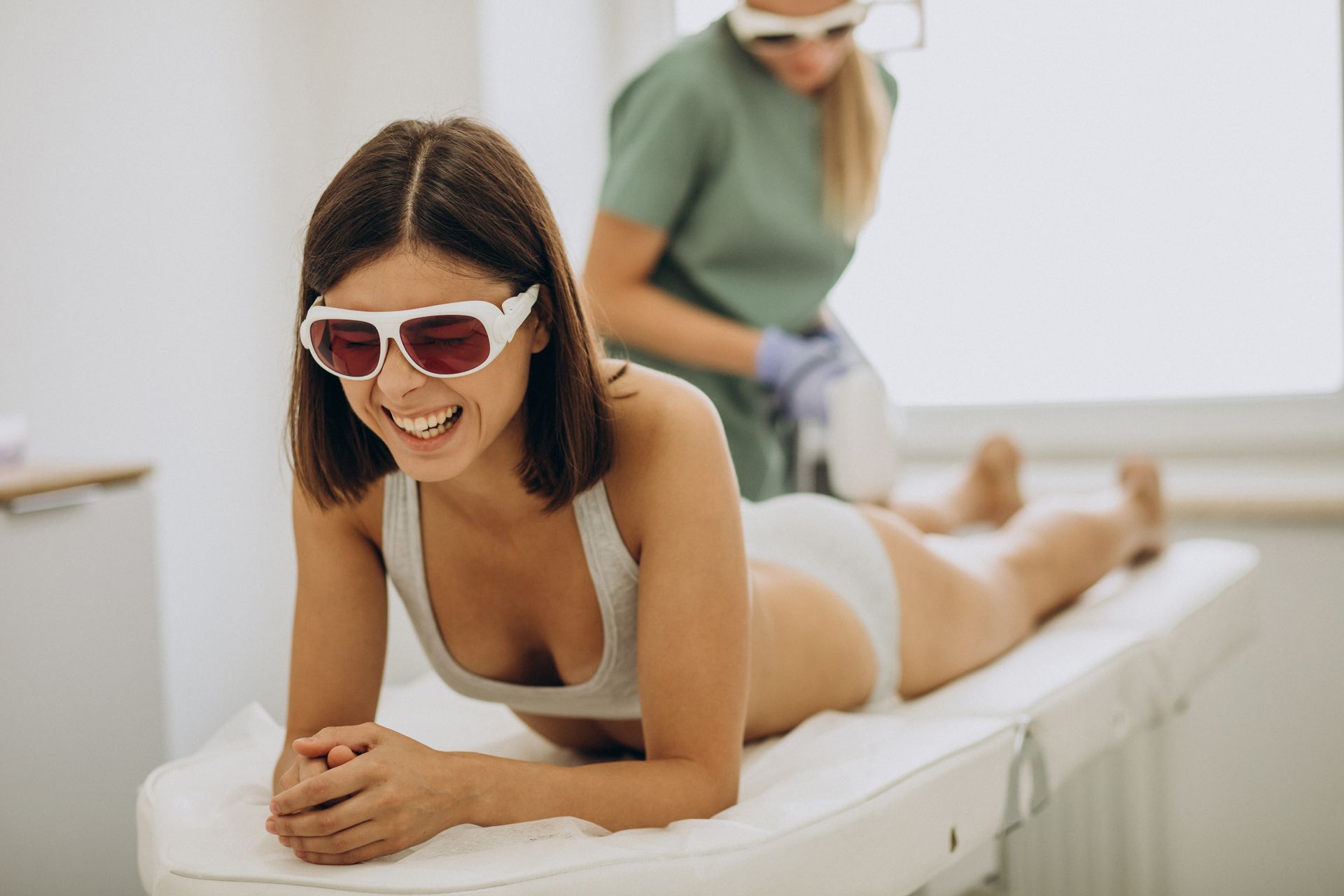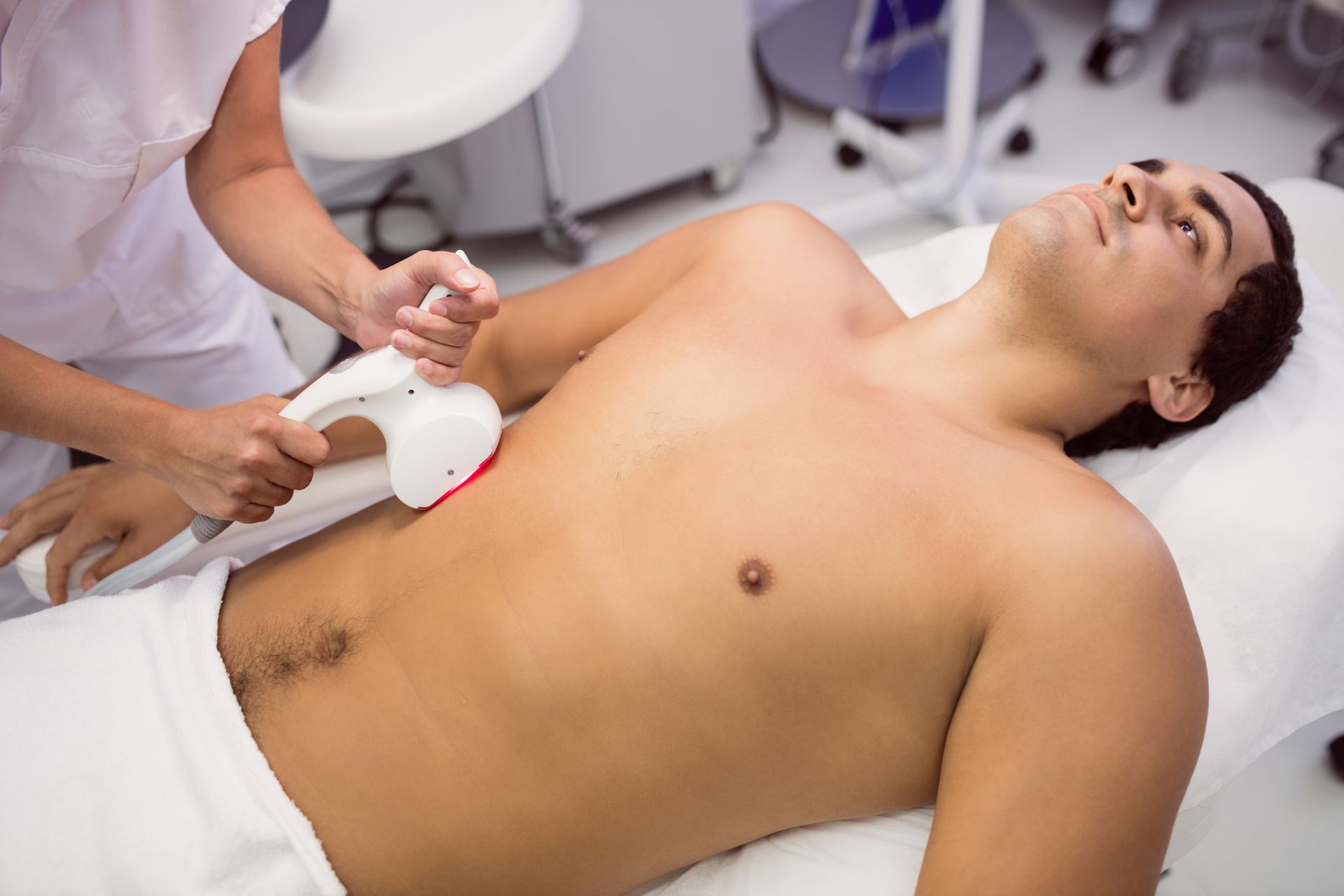Can I Do Laser Hair Removal If I Have Acne or Open Pores?
If you’re struggling with acne or enlarged pores, the thought of doing laser hair removal can feel intimidating. You might wonder — will it make my acne worse? Can it clog my pores or cause irritation? Or is it actually helpful in reducing breakouts?
These are valid questions, especially since both acne and open pores involve sensitive skin that can react strongly to treatments. The truth is, you can get laser hair removal even with acne or open pores, but it depends on the type, severity, and your skin’s current condition. With the right precautions and professional care, it can even improve your skin’s texture and health over time.
Let’s explore what you should know before scheduling your session.
Can I get laser hair removal before my wedding or vacation?
Understanding the Relationship Between Acne, Pores, and Laser Treatments
To understand whether laser hair removal is suitable for acne-prone skin, it helps to know how each works.
Acne occurs when hair follicles become clogged with oil, dead skin, and bacteria, leading to inflammation.
Open pores are enlarged hair follicles — often due to excess sebum production, genetics, or sun damage.
Laser hair removal targets the pigment (melanin) inside the hair follicle, heating and destroying it to prevent future growth. When done correctly, this process reduces bacteria, oil buildup, and irritation — which can, in some cases, actually help with acne management.
Can You Get Laser Hair Removal with Active Acne?
Yes — but it depends on the type and extent of your acne.
If you have mild to moderate acne, most clinics can safely perform laser hair removal by avoiding or gently working around active pustules. The laser targets the follicle beneath the skin, not the acne itself, so mild breakouts typically don’t interfere with treatment.
However, if you have severe cystic acne or inflamed pustules covering large areas, it’s best to postpone your session. The heat from the laser can aggravate inflammation or cause additional irritation.
In short:
Mild acne: Usually safe with precautions.
Severe acne: Best to consult a dermatologist first.
Can Laser Hair Removal Help Reduce Acne?
Surprisingly, yes — in many cases, laser hair removal can help control acne. By removing hair, you reduce the number of follicles that can trap oil and bacteria. This means fewer breakouts and smoother skin over time.
Additionally, laser energy can have an antibacterial effect, minimizing Propionibacterium acnes — the bacteria that contribute to acne. Some people even notice clearer skin after a few sessions, especially on areas like the face, back, and chest, where hair growth often triggers irritation.
Still, this isn’t a treatment for acne itself. It’s more like an indirect improvement — a welcome bonus to your hair removal routine.
What About Open or Enlarged Pores?
If you have open pores, you can still do laser hair removal safely, but you should take extra care before and after treatment.
The laser’s heat may cause temporary redness or make pores appear slightly larger right after the session, but this is short-term and reversible. In fact, once your skin heals, many people notice tighter, smoother pores because the laser stimulates collagen production and reduces excess oil.
To prevent irritation, avoid treatments when your skin barrier is compromised — for example, if you’ve recently exfoliated, used retinoids, or experienced sunburn.
Pre-Treatment Tips for Acne-Prone or Sensitive Skin
Preparation is key when it comes to safe and effective results. Here’s how to minimize any risk:
Avoid harsh skincare products for at least 3–5 days before your session. This includes retinol, AHAs/BHAs, benzoyl peroxide, and exfoliants.
Don’t pop pimples or extract blackheads before treatment — it increases the risk of irritation and infection.
Cleanse your skin gently on the day of the appointment, removing any makeup, oil, or lotion.
Inform your technician about your acne history and current medications. Certain acne drugs (like isotretinoin) require you to wait several months before laser treatment.
Shave the treatment area 24 hours prior — never wax or pluck, as the laser needs the hair root intact to work.
At-Home Laser Devices vs. Professional Clinics: Do They Work the Same?
Post-Treatment Care for Acne or Open Pores
After your laser session, your skin may feel warm, sensitive, or slightly bumpy — this is normal and temporary. To help your skin heal beautifully:
Use a cooling gel or aloe vera to soothe redness.
Avoid touching or picking the area — irritation can trigger acne flare-ups.
Skip makeup and heavy moisturizers for 24–48 hours.
Stay away from saunas, hot showers, and workouts for 1–2 days to prevent sweating and pore clogging.
Apply sunscreen daily — your skin is more photosensitive post-laser.
Within a few days, your pores will settle, your skin will smooth out, and you’ll start noticing slower, finer regrowth.
When to Avoid Laser Hair Removal
It’s best to delay your session if:
You’re using Accutane (Isotretinoin) or have used it within the last 6–12 months.
You have active cystic acne or skin infections in the treatment area.
You’ve had recent chemical peels, microneedling, or sunburn.
Your skin feels overly sensitive or irritated.
A good clinic will always evaluate your skin condition first to ensure timing and laser settings are safe for you.
Expert Insight: Choosing the Right Laser Type
If you have acne-prone or sensitive skin, not all lasers are equal. The best options include:
Diode Lasers: Effective and gentle on sensitive skin types.
Nd:YAG Lasers: Safer for darker skin tones and less likely to cause irritation.
Alexandrite Lasers: Great for lighter skin tones with fine to medium hair.
Your technician will choose the right wavelength and energy level based on your skin’s tolerance, tone, and hair type.
Can Laser Hair Removal Cause Acne?
Sometimes, yes — but it’s not the type of acne you think. Some people experience temporary folliculitis (tiny pimple-like bumps) after treatment. This happens when heat disrupts the hair follicles, leading to mild inflammation.
The good news? It’s not true acne, and it usually subsides within a few days with gentle care and cooling gels. Keeping your skin clean and moisturized (but not greasy) helps the bumps heal quickly.
The Bottom Line
You can get laser hair removal even if you have acne or open pores — as long as your skin isn’t actively inflamed or damaged. With the right precautions, laser treatment can actually make your skin cleaner, smoother, and less prone to breakouts over time.
Always start with a consultation at a reputable clinic that understands how to handle acne-prone and sensitive skin. A trained technician can customize your laser settings, guide your pre- and post-care, and help you achieve safe, lasting results.


